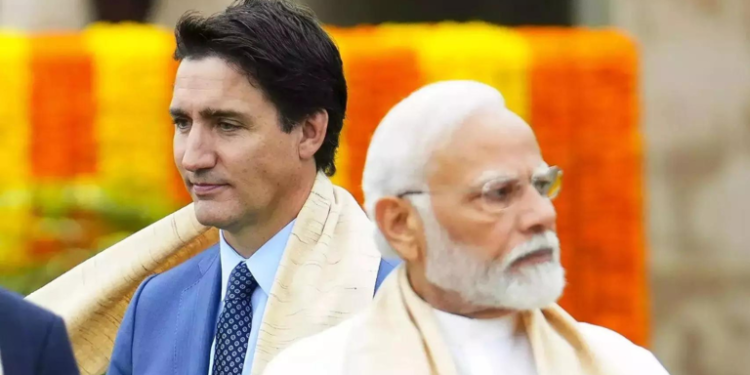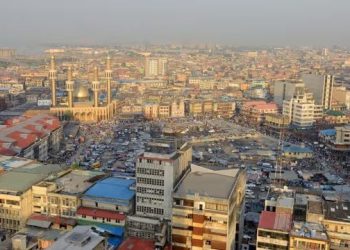Over five months since Canada recalled over two-thirds of its diplomats, the Justin Trudeau-led government has now decreased the number of local staff at its Indian missions because of a lack of supervisory personnel to manage them.
Fintech Telex gathered that this development came on board due to a shortage of Canadian personnel to efficiently oversee operations.
Although the exact number of retrenched employees remains undisclosed, it is believed that the number is significant.
The High Commission acknowledged the staff reductions as a regrettable necessity following the departure of Canadian personnel.
Background
Last October, Canada withdrew 41 diplomats from India after New Delhi demanded “parity” over diplomatic representation as it lashed out at Ottawa’s allegations that Indian agents had been behind the killing of a Canadian national, Hardeep Singh Nijjar.
READ MORE: LemFi Suspends Ghana Operations, Here’s Why
Since then, the high commission in New Delhi and the three consulates in Mumbai, Chandigarh, and Bengaluru have been operating with around 21 Canadian diplomats.
In a statement, the Canadian High Commission’s media relations office said that the decision was taken in the aftermath of the withdrawal of the Canadian diplomats.
More Details…
Confirming the staff reductions, a media relations official at the high commission expressed regret over the necessity of this decision, citing the departure of Canadian staff last year.
“We wish to extend our sincere gratitude to our local staff in India for their resilience, dedication, and service. Canada remains committed to providing essential services to Canadians in India, including consular support and facilitating trade and business development, to uphold the longstanding ties between our two nations,” stated the official, noting that Canada’s visa application centers in India continue to operate normally.
The Rift Between India And Canada: How It Started
The diplomatic rift between India and Canada stemmed from Canadian Prime Minister, Trudeau’s accusation that Indian government officials were involved in the murder of Khalistan (a separate Sikh nation in India’s northern Punjab state), leader Hardeep Nijjar in the Vancouver area. In response, the Indian government accused Canadian diplomats of interfering in its internal affairs.
The Indian government had claimed that Canada had not taken enough steps to curtail the activities of Khalistani groups on its soil.
Meanwhile, Ottawa has complained that New Delhi has not provided enough information and proof that would be compatible with Canada’s legal system.
Trudeau reiterated his concerns about the Nijjar case during his testimony before a committee investigating allegations of foreign interference in Canadian affairs. He reaffirmed his government’s commitment to protecting the rights and freedoms of Canadians, criticizing the previous Conservative government for its alleged close ties with the current Indian government.
India-Canada Bilateral Relation
Canada and India have longstanding bilateral relations built upon shared traditions of democracy, pluralism, and strong interpersonal connections. Canada is home to one of the largest communities of Indian origin, with approximately 4% of Canadians being of Indian heritage (1.3 million people).
The deep cultural and political ties between Canada and India are strengthened by a growing network of official dialogues, agreements, memoranda of understanding, and working groups. At the Ministerial level, Canada and India enjoy a strategic partnership underpinned by Ministerial Dialogues on:
In India, Canada is represented by the High Commission of Canada in New Delhi. Canada also has Consulates General in Bengaluru, Chandigarh, and Mumbai, as well as trade offices in Ahmedabad, Chennai, Hyderabad, and Kolkata. In addition, Immigration, Refugees and Citizenship Canada (IRCC) has a significant presence in India; the High Commission in New Delhi is home to Canada’s largest visa office abroad.
India is represented in Canada by a High Commission in Ottawa and by consulates in Toronto and Vancouver.
Canada And India To Maintain Mutual Relationship
Despite the diplomatic strain, Canada emphasizes its enduring connections with Indian citizens, welcoming them for visits, work, study, or permanent residence in the country. India had not anticipated Canada’s closure of consulate services, as its decision to expel diplomats aimed solely at achieving diplomatic parity between the respective high commissions in Delhi and Ottawa.
It was disclosed that the “core services” to Canadians in India, which it described as consular support and business development, will continue to be delivered “so that the citizens of our two countries can continue to benefit from the longstanding ties between Canadians and Indians”.










